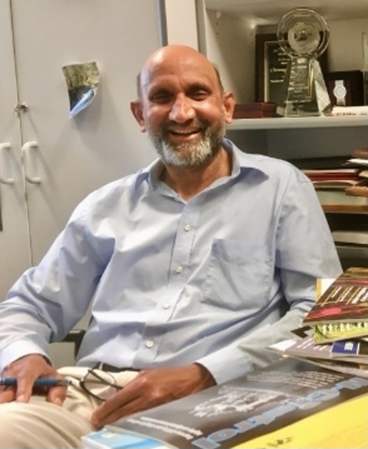In 2018, the Indian film “Starting Line” focused the public’s attention on the issue of education in India. It depicted the length some Indian parents were willing to go to secure educational resources for their children, as well as the difficulties faced by those disadvantaged in society in their fight for equal educational opportunities. In reality, many brilliant young Indian talents have been able to study in Australia through a fund set up by Prof. Chennupati Jagadish, a Distinguished Professor of the Australian National University. Prof. Jagadish is a Fellow of the Australian Academy of Science and the Australian Academy of Technological Sciences and Engineering. In 2018 he was awarded a UNESCO Prize for his contribution to the development of nanoscience and nanotechnology. He holds many positions, and has won numerous awards. What started Prof. Jagadish on his scientific research career? How did he become the respected scientist he is today? What was his intention in setting up the educational fund for students from developing countries? What advice does he have for young researchers? Here are the answers from Prof. Jagadish.

Bibliography: Prof. Jagadish is a Distinguished Professor of the Australian National University. He is serving as Editor-in-Chief (EIC) of Applied Physics Reviews and also served as EIC of Progress in Quantum Electronics. His research interests include compound semiconductor optoelectronics, nanotechnology, photovoltaics and neurotechnology. He is a Fellow of the Australian Academy of Science and the Australian Academy of Technological Sciences and Engineering, a Fellow of IEEE, APS, OSA, SPIE, AAAS, TWAS, etc., a Foreign Member of the US National Academy of Engineering, a Foreign Fellow of the Indian National Science Academy and Indian National Academy of Engineering.
He has been awarded the Australian Federation Fellowship (2004–2009) and the Australian Laureate Fellowship (2009–2014) by the Australian Research Council. He has received many awards, including The Quantum Device Award (ISCS, 2010), IEEE Pioneer in Nanotechnology Award (2015), IEEE Photonics Society Engineering Achievement Award (2015), Distinguished Fellow of the Chinese Academy of Sciences President’s International Fellowship Initiative (2016), Welker Award from ISCS (2017) and Lyle Medal from the Australian Academy of Science(2019).
link to article: https://www.nature.com/articles/s41377-021-00533-6
